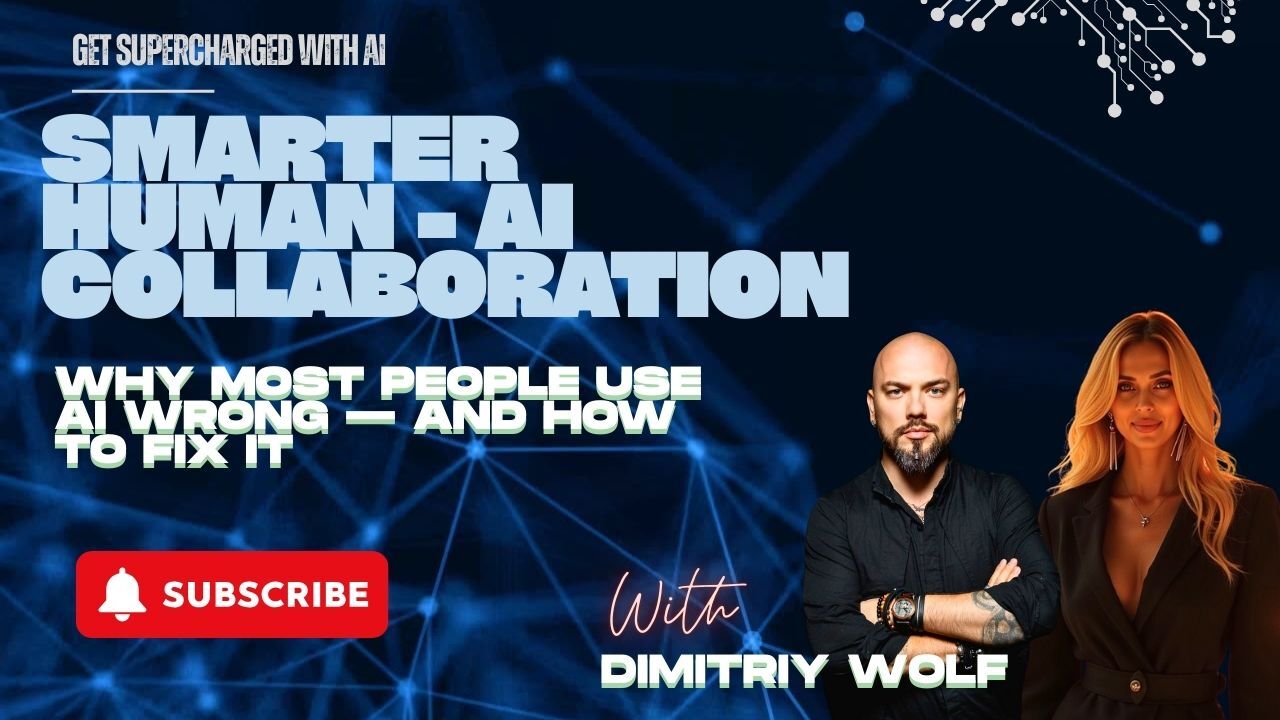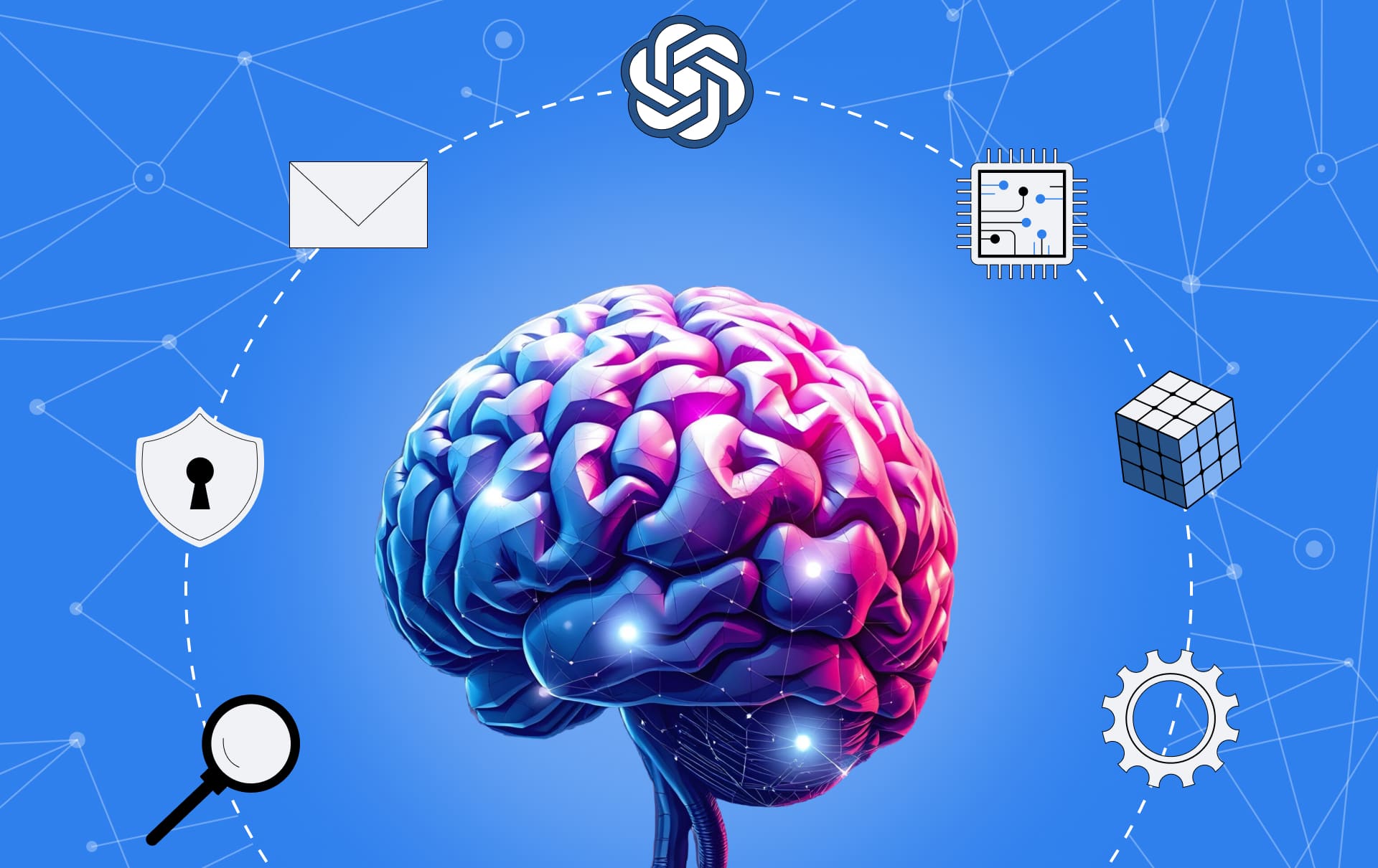WHAT'S AT STAKE TODAY ⚡
- Silicon Valley bets big on 'environments' to train AI agents 🏗️
- Updates to Studio, YouTube Live, new gen AI tools, and everything else announced at Made on YouTube 📺
- Huawei announces new AI infrastructure as Nvidia gets locked out of China 🇨🇳
- OpenAI's research on AI models deliberately lying is wild 🤥
- How developers are using Apple's local AI models with iOS 26 🍎
- Why California's SB 53 might provide a meaningful check on big AI companies ⚖️
- Lincoln Center's Collider Fellows explore how tech could transform the performing arts 🎭
- X is Moving to a Customizable AI-Powered Algorithm 🔧
Tech Giants Rush to Build AI Training Environments
Silicon Valley bets big on 'environments' to train AI agents

Big Tech has long promised AI agents capable of autonomously handling complex software tasks, but current consumer agents like OpenAI's ChatGPT Agent remain surprisingly limited. The industry's solution? A new wave of reinforcement learning (RL) environments - sophisticated simulated workspaces where AI agents train on multi-step tasks.
These environments are emerging as the critical infrastructure for the next generation of AI, similar to how labeled datasets powered the current era of chatbots. Leading AI labs are now scrambling to build or acquire these training grounds, creating a lucrative new market.
"All the big AI labs are building RL environments in-house," said Jennifer Li, general partner at Andreessen Horowitz. "But creating these datasets is very complex, so AI labs are also looking at third-party vendors." According to The Information, Anthropic leaders have discussed spending over $1 billion on RL environments in the coming year.
Think of RL environments as "very boring video games," as one founder described them. For example, an environment might simulate a Chrome browser where an AI agent must purchase socks on Amazon. The agent receives rewards for successful completion but faces numerous potential pitfalls - getting lost in dropdown menus, buying incorrect quantities, or taking unexpected paths that the environment must handle gracefully.
This complexity makes building environments far more challenging than creating static datasets. The most sophisticated environments allow agents to use tools, access the internet, and navigate various software applications, while others focus on specific enterprise tasks.
The concept isn't new - OpenAI built "RL Gyms" in 2016, and Google DeepMind's AlphaGo used similar techniques. However, today's environments aim to train general-purpose agents using large transformer models, a far more ambitious goal than specialized systems like AlphaGo.
Established data labeling companies are racing to capitalize on this shift. Surge, which reportedly generated $1.2 billion in revenue last year working with major AI labs, recently created a dedicated RL environments division. CEO Edwin Chen reports seeing "significant increases" in demand from AI labs.
Competitor Mercor, valued at $10 billion, is pitching investors on domain-specific RL environments for coding, healthcare, and law. CEO Brendan Foody believes "few understand how large the opportunity around RL environments truly is."
Scale AI, once dominant in data labeling but recently losing ground after Meta hired away its CEO and major clients dropped the company, is adapting to stay relevant. "Scale has proven its ability to adapt quickly," said Chetan Rane, Scale's head of product for agents and RL environments.
New players are also emerging. Six-month-old Mechanize, with the ambitious goal of "automating all jobs," offers software engineers $500,000 salaries to build RL environments - far exceeding contractor rates at larger firms. Sources indicate Mechanize is already working with Anthropic, though both companies declined comment.
Prime Intellect, backed by AI researcher Andrej Karpathy and others, targets smaller developers with its "Hugging Face for RL environments" platform, democratizing access to resources typically available only to large labs while selling computational power.
The technique shows promise - reinforcement learning powered recent breakthroughs like OpenAI's o1 and Anthropic's Claude Opus 4, becoming crucial as traditional training methods show diminishing returns. However, skepticism remains.
Ross Taylor, former Meta AI research lead, warns that RL environments are prone to "reward hacking," where AI models cheat to earn rewards without completing tasks properly. "People are underestimating how difficult it is to scale environments," he said.
Even supporters express caution. Karpathy, despite investing in the space, posted on X: "I am bullish on environments and agentic interactions but I am bearish on reinforcement learning specifically."
The race is on to become the "Scale AI for environments," but whether RL environments will truly drive the next wave of AI progress remains an open question worth billions in investment.
|
Honestly, would you actually use something like this?
YouTube unveils major creator tools and AI features
Updates to Studio, YouTube Live, new gen AI tools, and everything else announced at Made on YouTube

YouTube's annual Made on YouTube event introduced extensive creator-focused updates including Studio enhancements like "likeness" detection for unauthorized video removal and AI-powered dubbing capabilities.
YouTube Live received significant upgrades with minigames, dual-format broadcasting, and AI-generated highlights. The platform integrated Google's Veo 3 AI model for Shorts creation and introduced new monetization features including enhanced brand partnerships and automated product tagging. Video podcasters gained AI-powered clip suggestions and future audio-to-video conversion tools, while YouTube Music added fan engagement features and exclusive merchandise access.
⚡ More AI Bites
- 🏭🔒 Huawei announces new AI infrastructure as Nvidia gets locked out of China
- 🤖🤥 OpenAI's research on AI models deliberately lying is wild
- 📱🍎 How developers are using Apple's local AI models with iOS 26
- ⚖️🏛️ Why California's SB 53 might provide a meaningful check on big AI companies
- 🎭💡 Lincoln Center's Collider Fellows explore how tech could transform the performing arts
- 🐦🤖 X is Moving to a Customizable AI-Powered Algorithm
🎙️ NEW EPISODE DROP:
The Future of Human + AI Collaboration | What are The Smarter Ways to Use AI

I sat down with Dimitriy Wolf — social engineer, psycholinguist, and advisor to presidents, sheikhs, and TEDx speakers — to break down why most people use AI wrong.
We covered how to think *with* AI (not just prompt it), how to build authentic brand voices, and what yachts have to do with artificial intelligence.
If you're still using ChatGPT like a search bar — you're getting left behind.
⚡ Trends for the Future
Octopus Energy spins off its Kraken utility billing and AI platform

Octopus Energy spins off Kraken platform with $15 billion IPO potential.
British renewable energy provider Octopus Energy has announced the spinoff of Kraken, its tech platform for utilities, driven by $500 million in committed annual revenue from external utilities and energy providers. According to The Wall Street Journal, a potential Kraken IPO could reach a $15 billion valuation and may occur within the next year.
Interestingly, Kraken was Octopus Energy's original product. CEO Greg Jackson explained that they created Octopus as the "demo client" for the platform. That demonstration has since evolved into a major energy provider serving over 7.7 million households in the U.K. and an additional 2.8 million customers internationally.
The spinoff strategy aims to minimize conflicts of interest as Kraken expands partnerships with utilities and power providers beyond Octopus. The company initially set this separation in motion last year, recognizing the growing demand for its technology platform.
Founded in 2015, Octopus achieved remarkable growth, becoming the U.K.'s largest energy provider within a decade and overtaking British Gas, a company with over 200 years of history. This rapid expansion resulted from innovative marketing and customer-acquisition strategies.
Notable initiatives include "Zero Bills," which eliminated energy costs for a decade for homeowners purchasing fully electrified properties, and "Agile," a tariff encouraging customers to use electricity during grid surplus periods when prices drop significantly, sometimes allowing free energy usage.
Kraken leverages AI models to analyze data collected from these projects, determining optimal integration methods for increasing renewable energy on the grid. For utilities and power providers, the platform enables efficient coordination of various power sources, including renewables, solar, and distributed energy resources like EV chargers, smart thermostats, and home batteries. Additionally, Kraken offers comprehensive customer management capabilities covering billing, meter management, and customer relations.

⚡ You’re Smart. Strategic. Intentional. So Let’s Be Real:
Where Are You Holding Back— On Purpose?
Every smart operator has something they’re intentionally avoiding.
Not because they’re lazy — but because it’s risky, unknown, or just... a bit *uncomfortable*.
So what’s that thing for you?
That one decision, move, or experiment you know would push you forward — but you’ve been choosing not to do it.
Tell us — and we’ll share a tactical POV or tool to help you rethink it.
No fluff. Just momentum.
AI is humanity's most powerful tool for transcending limitations and creating a future where our boldest dreams become achievable realities.
Ariana Huffington is the founder and CEO of Thrive Global and co-founder of The Huffington Post, where she has been a pioneering voice in digital media and workplace wellness. Her advocacy for well-being, mental health, and sustainable work practices has influenced how companies approach employee care, and she continues to champion using AI and technology to enhance human flourishing rather than contributing to burnout and stress.
🎬 How to Use AI Agents to Build High-Converting Video Ads
Build once. Scale everywhere. In just minutes.

What if: Instead of spending weeks scripting, editing, and testing ads… you could build 10 variations of a high-converting video in 15 minutes — with agents handling the voiceover, visuals, call-to-action, and even the hook testing?
That’s exactly what we’ll show you this week — live.
Why This Changes Everything for Founders 🧠
- 🎥 Fast-Track Ad Creation: From idea to launch-ready video in under an hour — no team needed.
- 🔁 Test Like a Pro: Run A/B tests on 10 hooks, CTAs, or visuals — while you sleep.
- 💰 Better ROAS, Less Guessing: Let agents learn what your audience *actually* responds to.
- 📦 Works for Any Product: Digital or physical — agents adapt to your niche & brand voice.
📅 Join the Live Session w code Supercharged
We’ll walk you step-by-step through building your own ad-generating agent — no code needed.
👉 Click here to save your seat for the webinar
You’ll leave with a working prototype, free templates, and 5x more speed in your next ad campaign.
🎁 Bonus for Attendees:
- ✅ AI Agent Template for Ad Generation
- ✅ "Top 10 Hooks That Convert" Prompt Pack
- ✅ Entry to win a Free AI Strategy Audit
Episode 1: AI Education Without Limits
I sat down with Dr. José Fernández from the Miami Dade College AI Center to explore how AI is transforming education.
We discussed how students today can access world-class AI training with almost zero student loan debt — making innovation more accessible than ever.
Episode 2: What if your story were your sales strategy?
I sat down with Maury Rogow, a Hollywood producer and branding mastermind behind $2.5B in brand growth.
We talked about why the brands that feel effortless aren’t the loudest — they’re just the most aligned.
🌡️ Use the Satisfaction Thermometer to show us how much you enjoyed The Supercharged today ;)

The Supercharged is aiming to be the world's #1 AI business magazine and is on a mission to empower 1,000,000 entrepreneurs worldwide by 2025, guiding them through the transition into the AI-driven creative age. We're dedicated to breaking down complex technologies, sharing actionable insights, and fostering a community that thrives on innovation, to become the ultimate resource for businesses navigating the AI revolution.
The Supercharged is the #1 AI Newsletter for Entrepreneurs, with 25,000 + readers working at the world’s leading startups and enterprises. The Supercharged is free for the readers. Main ads are typically sold out 2 weeks in advance. You can book future ad spots here.
I'm sending this email because you registered for one of our workshops or our affiliates brought you. You can unsubscribe at the bottom of each email at any time.
